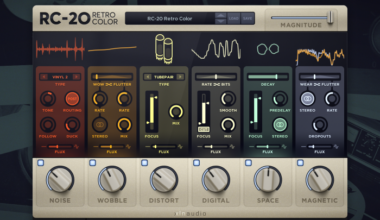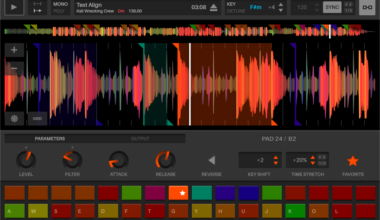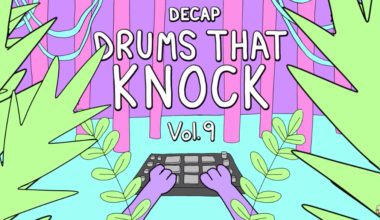
If you’re making beats, a common question asked is how music producers can collect royalties on what they’ve released. Failing to understand this complete picture could cause you to miss out on some owed money that is sitting in another Country, or for non-interactive streams. This will help ensure beatmakers know how to collect their royalties.
Choosing Your Digital Distribution Service
There are many top digital distribution platforms for any music producer to choose from. Even some free ones. A digital distributor like DistroKid, for example, puts your music on platforms like Spotify, Apple Music, etc.
When someone streams your music, or buys your song off iTunes, that money goes to your distributor who then pays you. iTunes is going to take 30% from every single sale you make, so if your song is selling for $0.99 then you’re at $0.69 for that download. Those $0.69 will be paid to you by your distributor (if their platforms lets users retain 100% of their royalties).
Now, if you reside in the United States, and the sale happened somewhere in Europe, for example, the country the consumer was located in is going to pay you $0.60 and the other $0.09 is going to be your mechanical royalty.
How musicians can collect their mechanical royalties
When a sale of your music occurs outside the United States, your mechanical royalty is paid to that country CMO. These royalties are then held specifically for the publisher to collect, so it won’t be paid to you by your distributor.
Mechanical royalties are something by law that have to be taken from every sale or every stream of music to be paid directly to the publisher. This is important for knowing how music producers can collect royalties.
For sales and streams included in the US, you don’t have to worry about mechanical royalties as they’re included in every stream and sale that are paid directly to your digital distribution platform. But if you’re making a significant amount of sales in different countries, then those mechanical royalties are collected by each individual country and held for the publisher.
Unless you’re fluent in the language of every country and plan to call them up asking for the money from the mechanical royalties you made off of sales in their country then it’s quite possible you are leaving a significant amount of money on the table. This is where hiring a company to manage your publishing administration might be worth exploring.
Publishing administration and its impact on how music producers can collect royalties
Songtrust comes highly recommended by all types of different places as a great way to collect your mechanical royalties paid to a publisher overseas. Songtrust is great in the fact that they don’t take any of your publishing, they’re simply managing its administration, so you retain 100% of your publishing ownership.
They charge a one-time fee of $100 and take a 15% commission on the royalties they claim. If you’re a full-time musician this is absolutely worth it. And it’s a non-exclusive agreement that you can cancel after one year if it’s not working out for you.
If you don’t think your mechanical royalties you have overseas would add up to these sign-up fees, then you might not have an immediate need to have publishing administration for your music.
Collecting your performance royalties
Your performance royalties are seperate than the money earned from overseas mechanical royalties and that collected by your digital distribution platform. Performance royalties are paid to you by your performance rights organization (PRO).
ASCAP and BMI are PRO’s, for example. They’ll collect money from radio play, a sync licensing placement, or even if your song is streamed on Spotify. There are also two accounts you sign up for with your PRO. There’s a writer’s account and a publishing account. And the writer’s and publishing accounts split the revenue 50/50 dependent on if you have 100% ownership over the song.
How music producers can collect their royalties: non-interactive streaming
Another source of income from your music comes from SoundExchange. If your music is out on SiriusXM or streaming sites like Pandora and its shuffle play, then you have royalties to collect through SoundExchange. It’s non-interactive in the sense that you don’t get to pick exactly what song you’re listening to, just a genre or something similar and then music gets served up to you automatically.
SoundExchange is free to sign-up for and is extremely easy to get started with on your own. If your music isn’t on SiriusXM or Pandora and any other non-interactive streaming sites, you won’t have anything in there, but it might be worth it to get signed up if this is your intentions for the future.
Claiming royalties from the social media ecosystem
In 2021, having your music in the social media ecosystem is crucial. Tikok, YouTube, Instagram, etc. It’s important to understand what digital distribution platforms will get your music into YouTube’s Content ID system, for instance. And what percentage they may take from your YouTube royalties.
Similarly, with the explosion of TikTok, you’ll want to understand if your digital distributor is getting your music onto this platform, and the how they’re paying you out for its usage.
As with anything, it’s always important to do your research and social media and its usage during every day life is one that can have a big impact on how music producers can collect their royalties.
The big picture on how music producers can collect their royalties
To sum everything up, it starts with your digital distribution platform. Check out our article on the top 20 digital distribution platforms, and make sure you work with the one that is the best fit for you.
If you are selling a lot of music overseas, you’ll want to work with a publishing administrator so you can collect your mechanical royalties.
You will collect your performance royalties through your PRO, and money earned from non-interactive streams though SoundExchange.
Lastly, don’t forget about the massive and growing ecosystem of social media networks, paying close attention to the YouTube Content ID system.





